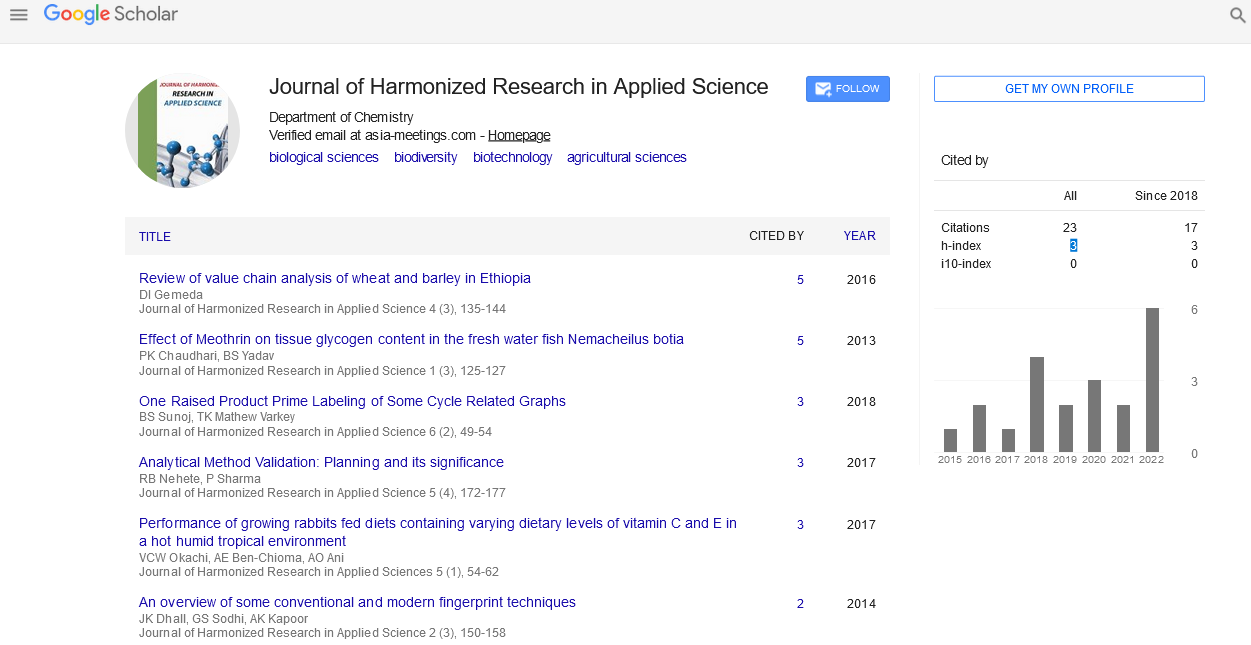Perspective - (2022) Volume 10, Issue 2
PROSPECT OF PRECISION MEDICINE FOR PUBLIC HEALTH
Nicola Farina*Received: May 26, 2022, Manuscript No. JHRAS-22-69070; Editor assigned: May 30, 2022, Pre QC No. JHRAS-22-69070(PQ); Reviewed: Jun 13, 2022, QC No. JHRAS-22-69070; Revised: Jun 20, 2022, Manuscript No. JHRAS-22-69070(R); Published: Jun 27, 2022, DOI: 10.30876/2321-7456.22.10.003.
Description
Precision medicine describes a model for health care delivery that largely relies on data, analytics, and information, whereas precision medicine refers to an approach to patients that includes their genetic make-up but also their preferences, beliefs, attitudes, knowledge, and social context. Precision medicine is based on the premise that your ailment, such as cancer or heart disease, isn’t always the same as someone else’s. Instead, your health, the symptoms you have, and even how effectively therapies work can be influenced by the genes you inherited from your parents and the environment you live in. Scientists believe that if they can figure out what’s causing these variances, they’ll be able to produce more effective treatments. This paradigm has far-reaching consequences for our country’s research agenda, as well as its implementation and adoption into health care. To be successful, precision medicine and the ecosystem that supports it must incorporate patient-centeredness and participation, digital health, genomics and other molecular technologies, data sharing, and data science.
Precision medicine has fallen behind the pace of basic science discoveries in terms of clinical care and health policy. According to a literature assessment by Roberts et al, “while genetic discovery has the potential to impact population health, the present knowledge base around implementation to make this promise a reality is extremely restricted.” Another example is our findings from precision medicine comparative effectiveness research investigations, which were based on a methodical literature review and expert gap analysis. We came to the conclusion that there is a scarcity of high-quality evidence about the impact of genetic tests on health outcomes, and that comparative effectiveness research is needed to fill up the gaps. Likewise, we believe that many published studies to date have been case studies of specific institutions, with only a few studies presenting empirical evidence on a large scale.
Therapeutic Drug Monitoring (TDM)-guided drug therapy has a long and illustrious history in clinical pharmacology, and it was one of the first examples of precision medicine even before the name was invented. TDM’s initial focus was (and continues to be) on medicines having a limited therapeutic index. It’s now being applied to a wider range of drugs with a less restricted therapeutic index but no other viable surrogate end goal for efficacy. One recent example is the use of biologics in the treatment of inflammatory bowel disease. Researchers evaluate the present evidence that supports the use of TDM in inflammatory bowel illness, demonstrating that serum concentrations of therapeutic antibodies against TNF, integrin, and interleukin-12/23 can promote mucosal healing.
Precision medicine has unquestionably been aided by advances in genetic science, especially pharmacogenomics. Clinical guidelines, such as those published by the Clinical Pharmacokinetics Implementation Consortium and the Dutch Pharmacogenetics Working Group, are essential in the daily practice of pharmacogenomics-guided precision medicine, but other enabling variables are also important. Wang and Weinshilboum10 emphasize the necessity of infrastructure development for any organization, but they also believe that it must be tailored to the specific needs of the local community. Once a scene has been created for pharmacogenomics-guided precision medicine, it must be carefully maintained. Kim (researcher) gives an overview of his professional practice, including what is required of healthcare practitioners and how it seems to patients. Our discipline’s obligation is to establish a framework for maintaining competency in pharmacogenomics practise, which requires more discussion and action.
Individual genomic data is now being used in clinical care. Predictive pharmacogenomics is one example of this trend. Some of the researchers detailed their pre-emptive pharmacogenomics practise in detail. As new knowledge accumulates, pharmacogenomic data, particularly those gathered in advance, require updated interpretation. They highlight the lack of a uniform methodology and the difficulties in contacting patients again. If there is no agreement on how and when pharmacogenomic interpretation should be revised, site-specific decisions must be made. This supports the idea that local factors are crucial in pharmacogenomics clinical implementation, which has been articulated by many renowned scholars.
It was becoming increasingly evident that medicine isn’t a one- size-fits-all proposition. For example, a medication that shrinks a tumour or relieves arthritis symptoms for one person may not work for another. If you have detailed tests to see how your arthritis or cancer differs from someone else’s, we’ll be able to tell. Then, rather of treating everyone else, we get a treatment that is tailored to us. At its foundation, precision medicine is about matching the right treatments to the right patients. However, it is not yet possible for all diseases. So, even though it sounds like a fantastic idea, doctor may still prescribe the typical medication that most people receive.










